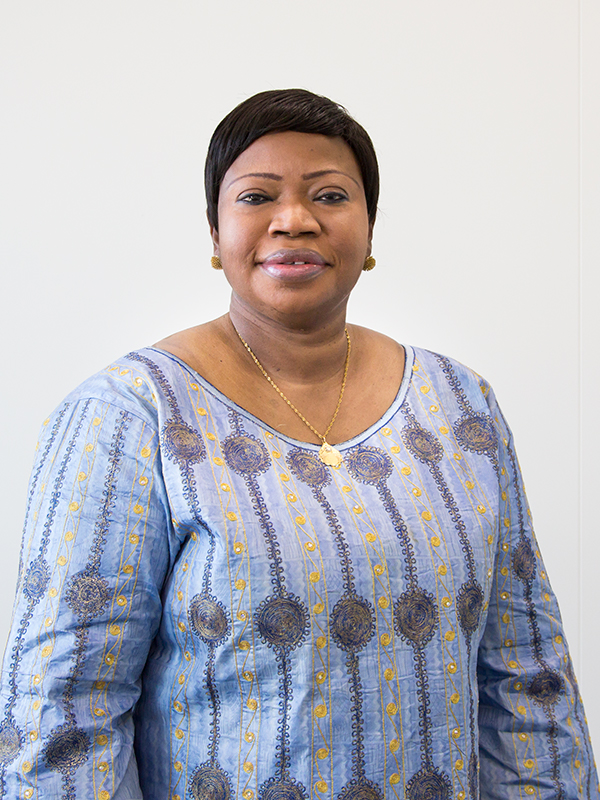Alagi Yorro Jallow.
The Gambia rejoined the International Criminal Court. One of the slam-dunk foreign policy successes so far are the fact that many of the initiatives of the Gambia that pre-date President Jammeh have been reviewed and the government has rejoined the Commonwealth and restored Gambia’s membership in the International Criminal Court.
The Presidency of the Republic of South Africa and Pierre Nkurunziza of Burundi should follow the Gambia’s example and work to strengthen the International Criminal Court. Is it only Africa the International Criminal Court is interested; and why Africa?
How is it that African presidents came together in a rare show of power and solidarity against International Criminal Court’s “imperialism”, threatened to pull out of the Rome Statute en masse, and now they don’t have the collective voice to stand up for Africa against continued imperialistic policies and demeaning attitudes from the west?
The answer is simple: they were on a mission to protect the rogues among their lot who were under ICC indictment– thugs and potential thugs protecting each other and let us remember that the only reason they ended up under ICC’s imperial chambers was that their own countries opted for it after failure to locally prosecute crimes against humanity.
Remember countries like Kenya spent millions on a global diplomacy that sent some of their smartest minds like former Ambassador Amina Mohamed to spray perfume where African presidents had defecated, and they pulled it off spectacularly, all under the pretext of upholding Africa’s sovereignty and honor.
Good lord they played that song-and-dance so well it was almost a tear-jerker to hear them talk of Africa’s dignity and sovereignty. How I wish this collective show of force by Africa’s presidents and diplomats could now be displayed for the good of Africa’s people, those who truly need their leaders to speak for them, address historical injustices, pull them out of the stench of poverty, save their dignity on the global stage. All but a few have failed the test of integrity.
African leaders adopted a strategy calling for a collective withdrawal from the international criminal court. It was an expression of impatience by African leaders with the court, which some say has focused too narrowly on Africa while pursuing cases of genocide, war crimes and crimes against humanity.
Two years ago, South Africa, Burundi and the Gambia all announced plans to leave the court, leading to concerns that other states would follow.
Some African countries have been especially critical of the ICC for pursuing heads of state. Sudanese president Omar al-Bashir has been wanted by the court since 2009 for allegedly orchestrating atrocities in Darfur.
The ICC also caused an uproar among some African nations by indicting Kenyan president Uhuru Kenyatta on charges of crimes against humanity for 2007 post-election violence in which more than 1,000 died. The case collapsed because of what the ICC prosecutor called lack of cooperation by Kenya’s government. Majority of countries also wanted the meaning of immunity and impunity amended in the Rome Statute, the treaty that set up the court in 2002.
The ICC portray itself as an apolitical institution that will act irrespective of their targets nationality or political position. Some people, particularly African leaders and post -colonial scholars, look at the Court’s caseload and wonder why, if that is the case, it’s only prosecutions have been of African nationals.
African scholars and Afrophiles portray the ICC as another way in which the West is establishing a neocolonial relationship in which Western countries, particularly those in Europe, using conditional support and military humanitarian intervention, maintain authority over their former colonies. They perceive the Ischial not as European per se, as an institution modeled on European principles and administered by a global elite inculcated in Western values and trained in the Western mode.
European countries and EU do not perceive themselves as imperial powers. Europe is the originator and a strong proponent of universal human rights and has fostered many institutions for their strict enforcement on the continent and worldwide.
It’s argued that the ICC is a part of a European imposed and implemented international human rights project which has a focus on Europe’s Africa colonies. The perception of the ICC as a European institution biased against Africa is predicated upon Europe’s perception and presentation of itself as a normative model for the international community, in whose reaction it can instruct others, which implies a sense of European superiority and conjures the specter of Europe attempting to remake Africa in its own.
Is it Africans who commit crimes only; the Office of the Prosecutor should explain to the world why they are overlooking other law offenders from other countries outside Africa.
By Alagi Yorro Jallow




